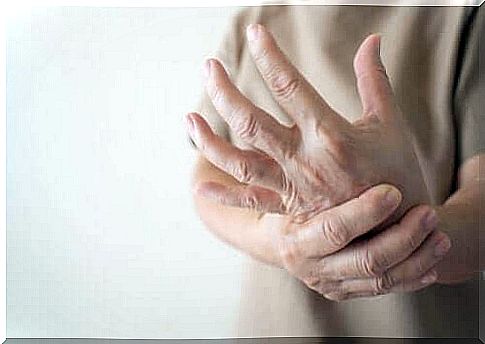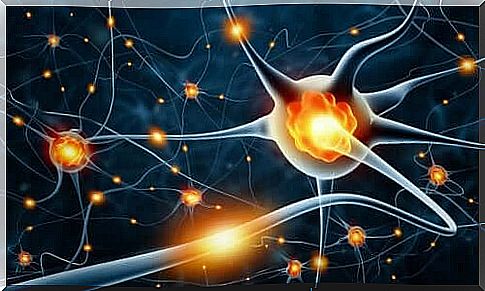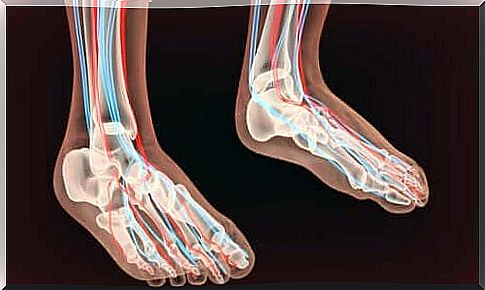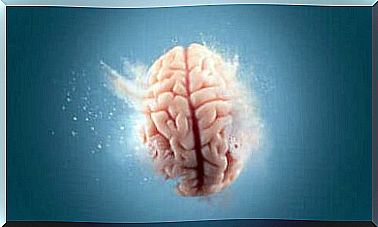What Exactly Is Peripheral Neuropathy?

The peripheral nervous system (PNS) is a part of the nervous system outside of the central nervous system (consisting of the brain and spinal cord). Its main task is to transmit signals of bodily sensations from the periphery to the brain. Peripheral neuropathy is when these nerves don’t work properly because they’re damaged.
PNS involves different types of nerves that have a specific function. These are for example:
- sensory nerves that transmit sensations such as pain and touch
- motor nerves responsible for muscle control
- autonomic nerves that control the body’s automatic functions, such as blood pressure and bladder function
Peripheral neuropathy can affect one group of nerves or all three at the same time. In any case, the normal functioning of the nerves is interrupted when the patient suffers from peripheral neuropathy, so that they can send out pain signals randomly or not at all when something is actually harming the body.
This condition can be the result of injury, a systemic disease, an infection, or a genetic disorder.

The Symptoms of Peripheral Neuropathy
The symptoms vary depending on the type of neuropathy.
Sensory Neuropathy
It can be manifested by the following symptoms:
- a feeling of numbness or a tingling sensation
- hypersensitivity and tingling in certain body parts
- more pain or the inability to feel pain
- not being able to notice changes in temperature
- poor postural stability and proprioception
- burning or stinging pain that may get worse at night
Sensory neuropathy can also lead to foot ulcers, infections and gangrene.
Motor Neuropathy
Motor neuropathy affects the muscles. The symptoms are:
- muscle weakness, resulting in instability and difficulty making small movements
- atrophy
- muscle attacks and cramps
- muscle paralysis
If autonomic nerves are also affected, the patient may suffer from vegetative symptoms associated with, among others:
- to sweat
- pain tolerance
- bowel or bladder function
- blood pressure changes that can cause dizziness
The Causes of Peripheral Neuropathy
While many forms of neuropathy are idiopathic (their cause is unknown), several other conditions can be the cause. Diabetes is one of the most common causes of chronic peripheral neuropathy because high blood sugar can damage nerves.
Other possible conditions and injuries that can cause this include:
- Chronic Kidney Disease. If the kidneys are not working properly, the resulting balance of mineral and chemical substances can lead to peripheral neuropathy.
- Skeletal muscle injuries. Broken bones and tight splints can put pressure on and damage the nerves.
- Infections such as shingles, HIV, Lyme disease, and other similar infections can damage nerves.
- Guillain-Barré syndrome. This is a specific form of peripheral neuropathy caused by a viral infection.
- Autoimmune diseases, especially rheumatoid arthritis and systemic lupus erythematosus.

Here are other possible causes of peripheral neuropathy:
- excessive use of alcohol
- specific medications (such as chemotherapeutic and HIV drugs)
- certain vitamin deficiencies, such as B12, B1, B6, and E
- consumption of toxic products, such as insecticides and solvents
- certain cancers, including lymphoma and multiple myeloma
- chronic liver disease
Also, small vascular disease can reduce the amount of blood reaching the nerves, causing damage to nerve tissue. Neuromas are benign tumors that affect nerve tissue and can also cause neuropathic pain.
Treatment of peripheral neuropathy
The treatment of peripheral neuropathy depends on the symptoms and the underlying cause. Only some of these causes are treatable. For example, controlling blood sugar levels can be of great benefit in diabetes, as can not smoking or drinking alcohol.
Medicines for neuropathic pain are used with “ neuropathic painkillers ” because painkillers are often ineffective. Other symptoms associated with peripheral neuropathy may require individual treatment. For example, the treatment of muscle weakness may include physical therapy and assistance with mobility.
Many people also benefit from transcutaneous electrical nerve stimulation (TENS). In this non-invasive and drug-free therapy, electrodes are placed on the skin. These electrodes transfer small amounts of electricity.
The goal of this treatment is to prevent the nerves from sending pain signals to the brain due to an interruption in nerve flow due to the electrical discharge.
On the other hand, it is worth mentioning that many patients have improved with alternative approaches such as chiropractic, acupuncture and massage. Meditation and yoga also seem to be very suitable for alleviating the symptoms. Finally, moderate, regular exercise can also help reduce the discomfort of this painful condition.









